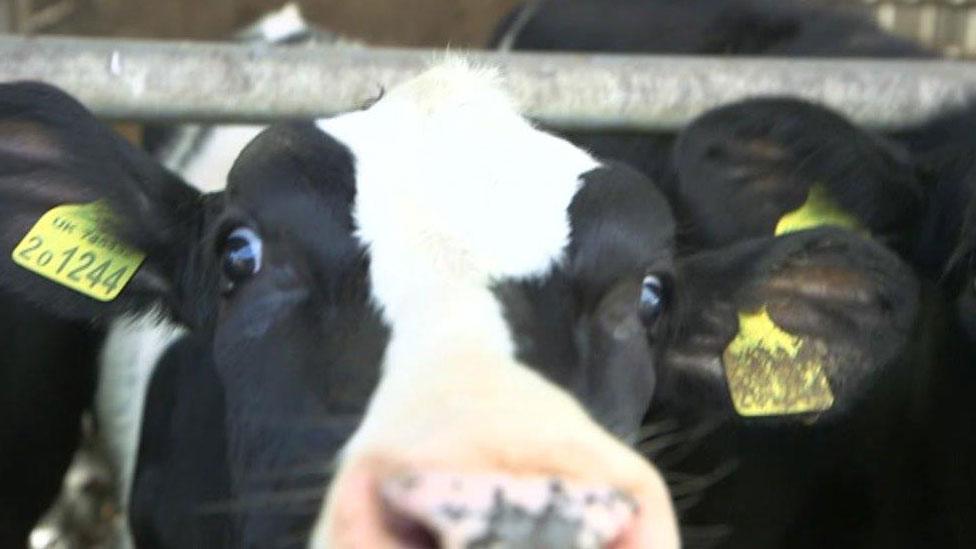'Refreshed' bovine TB policy includes targeting infected badgers
- Published
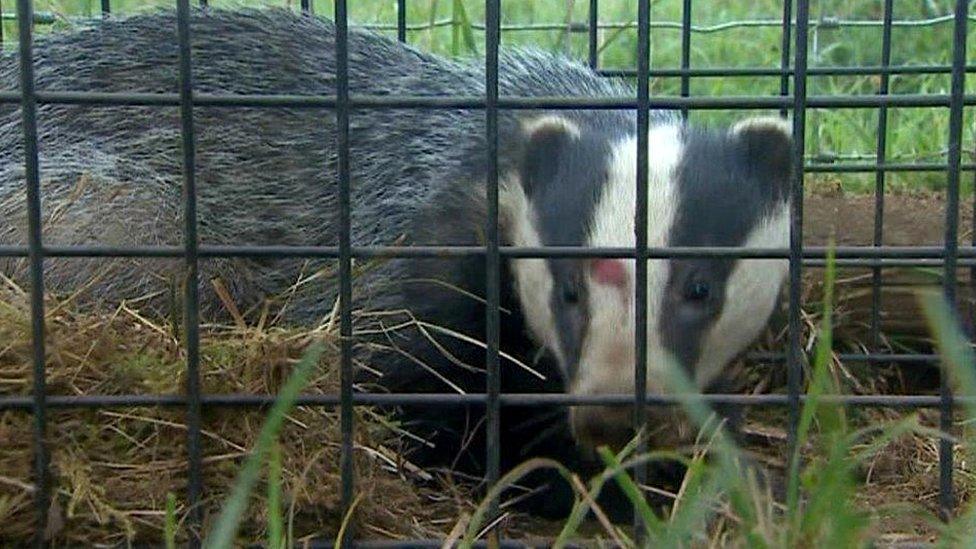
Badgers could be trapped and if found to be infected, they would be humanely killed
A large scale of cull of badgers has been ruled out as part of a "refreshed" approach to tackling TB in cattle in Wales.
Ministers will consider whether to allow cage-trapping and killing by injection of infected badgers found on affected farms.
Individual action plans will be developed for farms with long-term bovine TB issues.
Other measures involve deeper and more sensitive testing of herds.
But Wales' chief vet stressed there would be no "large scale, indiscriminate cull of badgers" - and any infected badgers found would be dealt with humanely.

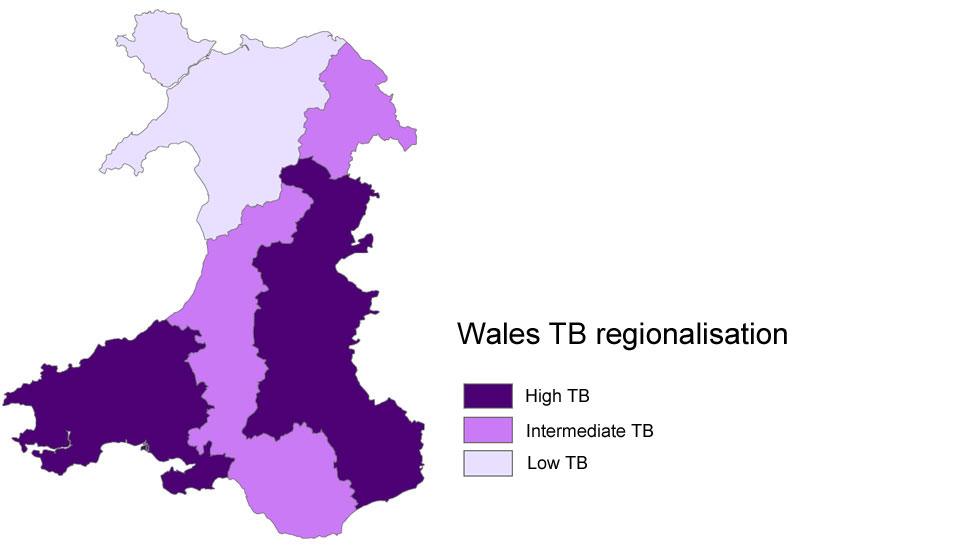
Under the new plans, different areas will be established across Wales based on bovine TB incidence levels
On Tuesday, the Welsh Government unveiled new plans which include dividing up Wales into different areas with low, intermediate and high incidence of the disease.
Pembrokeshire, Carmarthenshire and counties alongside the border with England will be classed as "high", while north west Wales is classified as "low".
A tailored approach will be developed to reflect the varying disease conditions and risks.
The aim is to try and avoid the disease from spreading to north west Wales and to work towards eradicating it in areas of high prevalence.
During a 12-week consultation, the Welsh Government will seek views on the measures that should be applied to each area.
For farms where there are persistent breakdowns, individual action plans will be developed in partnership with farmers, vets and the Animal and Plant Health Agency.
These would involve investigating farming practices.
Where it can be shown that badgers are part of the problem, Rural Affairs Secretary Lesley Griffiths said she would consider allowing cage-trapping them with infected animals being humanely killed.
Similar measures were recently piloted in Northern Ireland.
Meanwhile in England, licensed marksmen have been culling badgers in parts of Cornwall, Herefordshire, Devon, Gloucestershire, Somerset and Dorset.
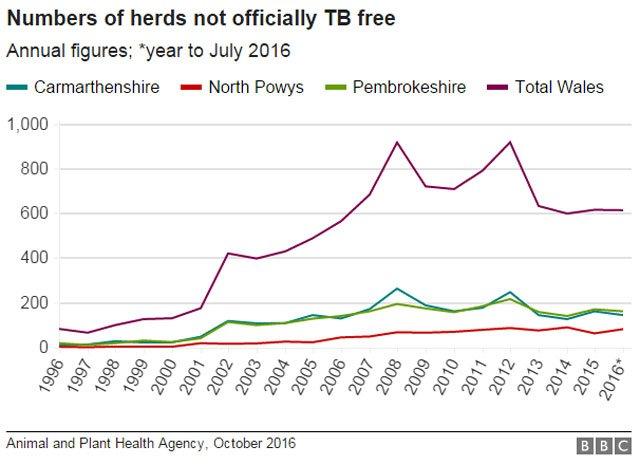
Farming unions had been calling for a badger cull to be included in the Welsh Government's new plans, a move fiercely opposed by wildlife groups.
Speaking in the Senedd, Ms Griffiths said it was "time to take stock" and "consider a refreshed approach".
"Since we introduced the eradication programme in 2012 we have seen a decrease in the number of new cases of bovine TB in cattle herds in Wales, with the latest figures showing the number of new TB incidents is down by 19%," she added.
"I am keen to build on this success and speed up progress, which is why I am looking to introduce enhanced, evidence-based measures."
Ms Griffiths said vaccination still had a role to play in the approach to TB eradication but added it was "too soon to think" about using it in the future when it was unknown when the supply would be restored.
Chief veterinary officer for Wales Prof Christianne Glossop said there were 60 farms where TB is a chronic problem
Chief veterinary officer for Wales Prof Christianne Glossop told BBC Wales it was possible that deeper and earlier testing could mean the number of cattle slaughtered would rise in the short term.
"As we find cattle at an earlier stage we're likely to find more infected cattle. But it's really important we find them as soon a possible and remove them from the farm," she said.
'Minimal damage'
Prof Glossop said they were determined to tackle "chronic" TB in herds at 60 farms, which in the longest 10 cases, had been going on for up to a decade.
Where infected badgers were found on farms, they would most probably consider euthanizing the animals - using a lethal injection - as opposed to shooting.
"We're not proposing a large scale, indiscriminate cull of badgers across large swathes of countryside - we're talking about looking for infected groups of badgers and removing those in an appropriate and humane way," said Prof Glossop.
She said large scale culling was not appropriate or necessary in Wales and a "minimal damage approach" should be tried.
Carmarthenshire farmer Gwyndaf Thomas faces the slaughter of 85 of his cattle next week
Gwyndaf Thomas, who farms in Meidrim, Carmarthenshire, has been told 85 of his cows are to be slaughtered next week.
He said, aside from the effect on his business, it could be distressing. "I hope they won't want to shoot animals on the farm," he said.
Meurig Harries, from Wolfscastle, north Pembrokeshire, said his dairy herd are like family
The Farmers' Union of Wales (FUW) called it a "small step in the right direction" but said many farmers would be concerned at the implications of splitting Wales into TB zones.
"Targeting infected badgers would be a welcome move, but it is disappointing that it has taken so many years to move back towards common sense after the original comprehensive plan to tackle the disease in wildlife was abandoned by the previous Welsh Government," said FUW president Glyn Roberts.
NFU Cymru president, Stephen James said there was "welcome recognition" of the link between cattle and wildlife in disease transmission "but we are concerned at the time it may take for this issue to be adequately addressed."
Conservative rural affairs spokesman Paul Davies AM welcomed the consultation but believed it was a case of "too little, too late".
He added: "It is imperative we see more decisive action from the Welsh Government as this disease is having a devastating impact on rural communities and Welsh farming."
- Published17 October 2016
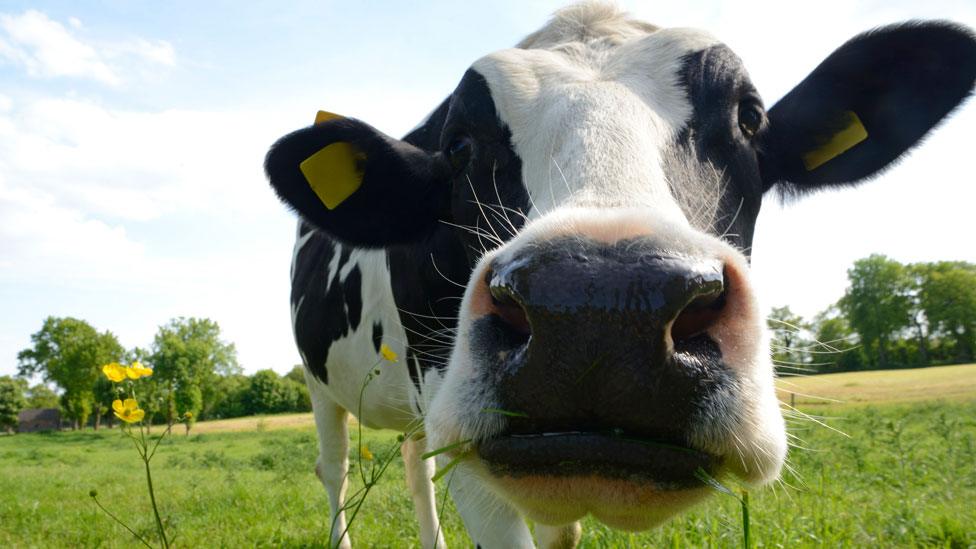
- Published16 August 2016
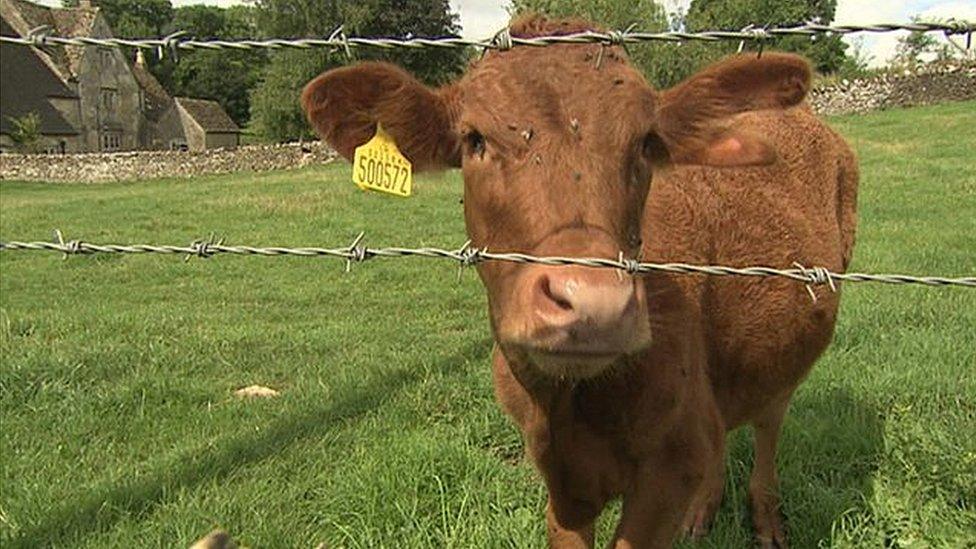
- Published15 January 2015
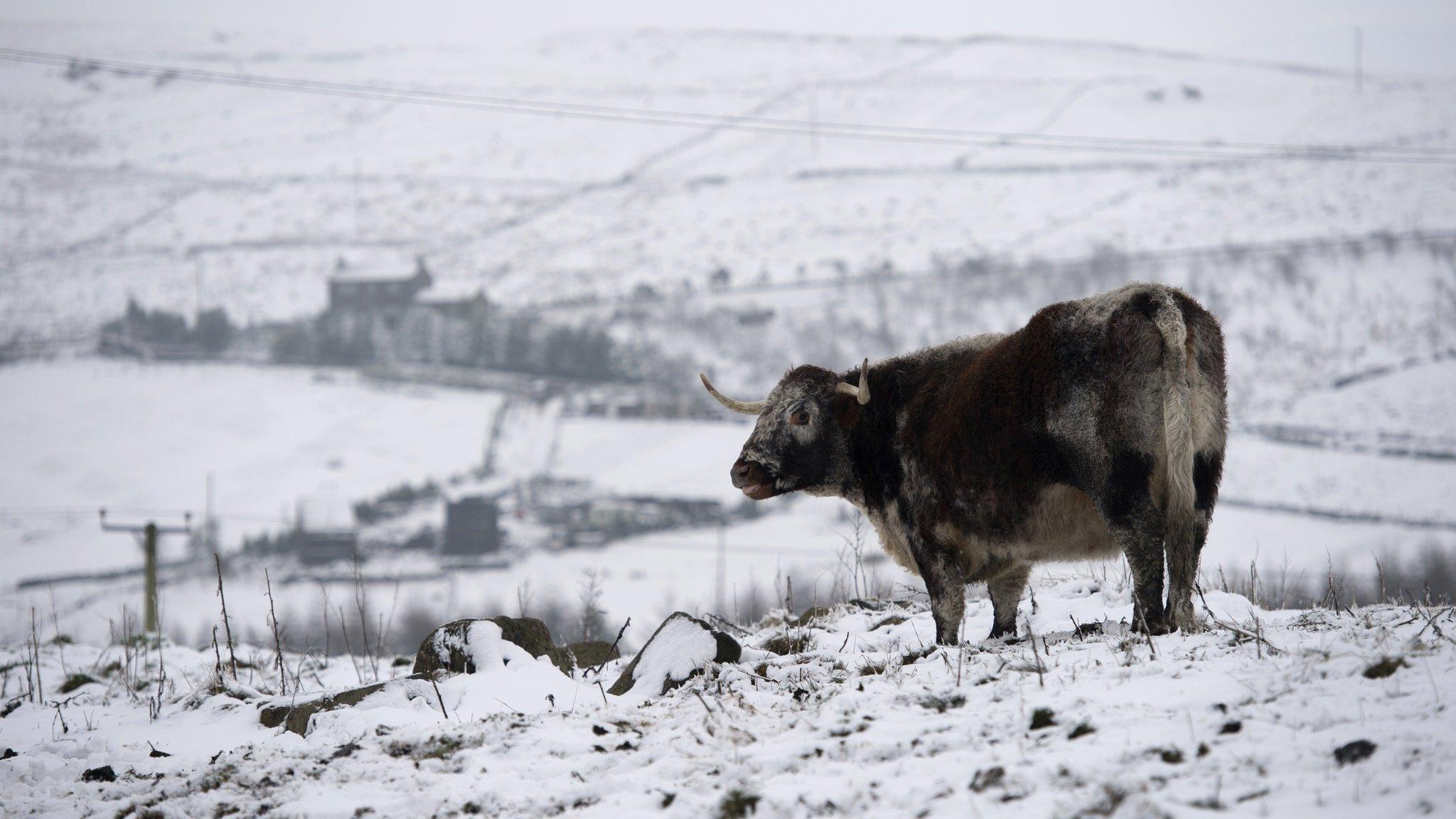
- Published18 October 2016
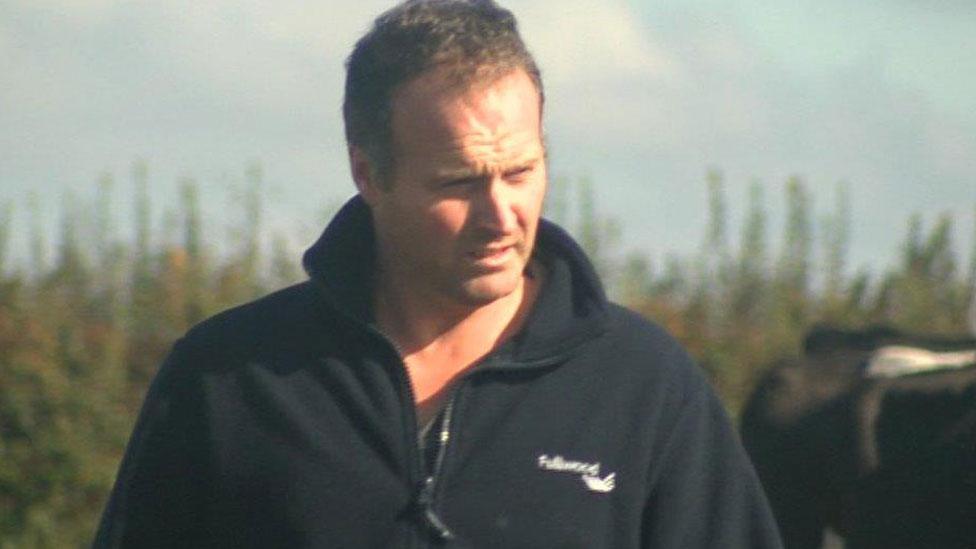
- Published18 October 2016
